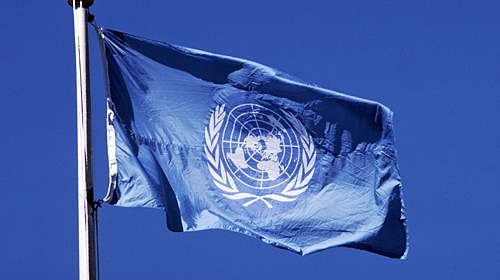
This week, the United Nations Human Rights Committee will review U.S. compliance with its obligations under the International Covenant on Civil and Political Rights, ratified by the U.S. in 1992. The review will cast light on a dark underbelly of American exceptionalism — our refusal to acknowledge that human rights treaties have effect overseas. Unlike most of the world (the only other exception being Israel), the United States continues to claim that human rights treaties don’t apply to U.S. activities overseas.
The review is a rare spotlight on human rights issues inside the United States, one of the few occasions where our government is forced to speak the language of human rights – rather than its usual constitutional and civil rights rhetoric – and explain its own violations. It is also attracting worldwide attention—so much so that the committee had to reserve a bigger hall to accommodate the sizable U.S. government delegation and more than 70 human rights advocates and observers who will be in attendance at the six-hour session. The entire U.S. ICCPR review will be broadcast live on UN TV and take place on March 13 and 14.
The review will shine an international spotlight on significant human rights issues in the United States: the rights of indigenous peoples, the death penalty, solitary confinement, voting rights, migrant and women’s rights, NSA surveillance and targeted killings.
The ICCPR protects basic human rights, such as freedom from torture and abuse, freedom from discrimination, the right to life and effective remedy, the right to privacy and freedom of expression, and many more. Since ratifying the treaty in 1992, the U.S. has been bound to uphold these fundamental protections and must undergo periodic reviews. The last time the United States appeared before this committee was in July 2006, when the Bush administration denied participation in numerous acts of torture while operating a web of secret CIA detentions abroad.
The ACLU submitted a shadow report to the committee highlighting examples of accountability gaps between U.S. human rights obligations and current law, policy, and practice. Although the U.S. human rights record has shown marked improvement since its last review by the committee in 2006, most notably in the areas of LGBT rights and enforcement of civil rights by the Department of Justice, U.S. laws and policies remain out of step with international human rights law in many areas. In addition, the ACLU provided an update to the issues covered in our September submission to the committee, which addresses serious rights violations that have emerged in recent months. The report covers:
Anti-Immigrant Measures at the State and Federal Levels
U.S.-Mexico Border killings and Militarization of the Border
Accountability for Torture and Abuse During the Bush Administration
More than ever, the U.S. is facing an uphill battle to prove its bona fides on human rights issues. The United States is not only seen as a hypocrite, resisting demands to practice at home what it preaches abroad, it is now increasingly seen as a violator of human rights that is setting a dangerous precedent for other governments to justify and legitimize their own rights’ violations.
While addressing United States’ breaches of privacy rights last January, President Obama said:
And I also know that in this time of change, the United States of America will have to lead. It may seem sometimes that America is being held to a different standard. And I'll admit the readiness of some to assume the worst motives by our government can be frustrating. No one expects China to have an open debate about their surveillance programs, or Russia to take privacy concerns of citizens in other places into account. But let’s remember: We are held to a different standard precisely because we have been at the forefront of defending personal privacy and human dignity.
The ICCPR review process presents the administration with an opportunity to put President Obama’s words into action, not only in the context of privacy rights, but all other rights guaranteed by the ICCPR. This review will be the last in his term as president and will, in part, determine his human rights legacy. We look forward to briefing the committee members and observing the U.S. government review later this week, and hope that the concerns and recommendations raised by the ACLU and other groups will be meaningfully addressed by the U.S. government. The world will be watching.
Learn more about human rights and other civil liberty issues: Sign up for breaking news alerts, follow us on Twitter, and like us on Facebook.

